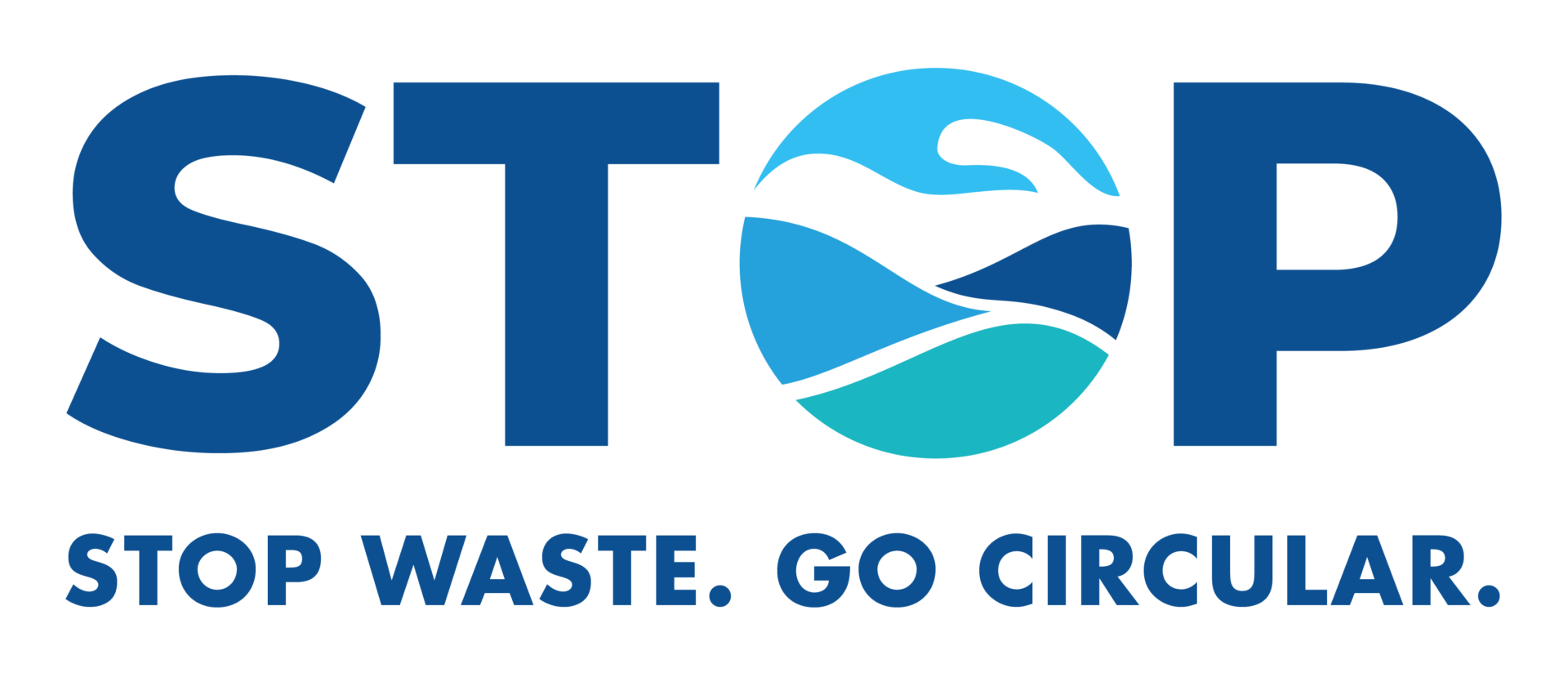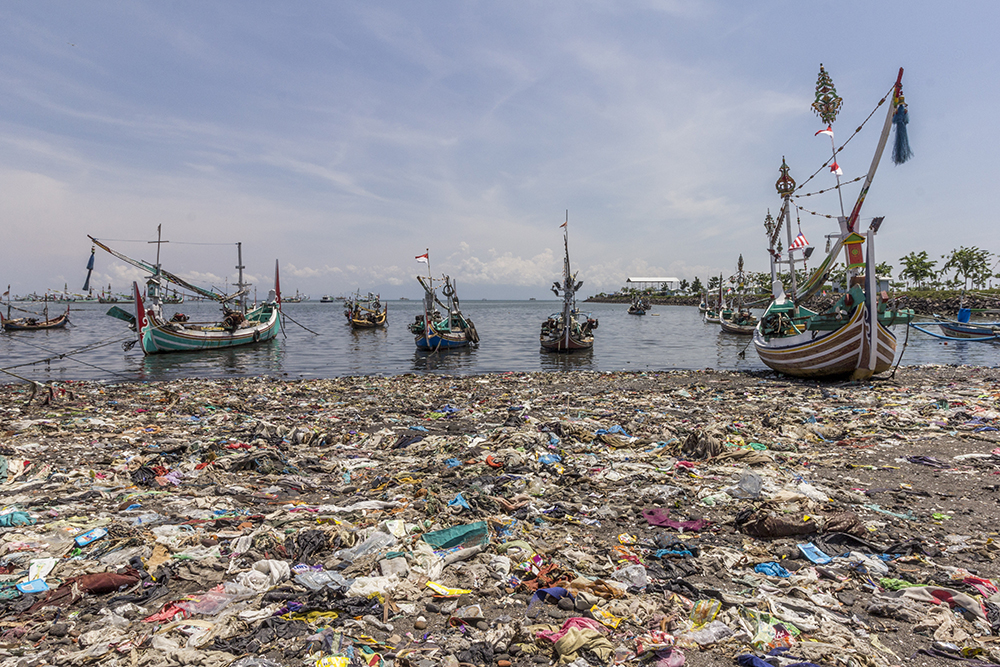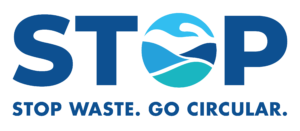Pasuruan, 20 February 2020 – Today, the regional government of Pasuruan in East Java boosted its commitment to reduce ocean plastic leakage by allocating two hectares of land for Project STOP to establish a Material Recovery Facility. This facility will manage waste collection, segregation and recycling processes at the Lekok and Nguling municipalities for the first time. This endorsement is outlined in the Memorandum of Understanding (MoU) signed today for Project STOP in Pasuruan.
Currently, only 9% of Pasuruan residents have access to waste management services, of which just 1% of waste is responsibly managed. Residents have no other option and must dump their waste in the open environment.
Launched in 2017, Project STOP is an initiative co-founded by Borealis and SYSTEMIQ that designs, implements, and scales circular economy solutions to prevent plastic pollution in Southeast Asia. Working with companies, local governments and community groups, Project STOP supports cities with technical expertise to achieve zero leakage of waste, improve circular economy systems, create new jobs in waste management, and reduce the harmful impact of mismanaged waste on public health, tourism and fisheries. Project STOP’s long-term ambition is to establish new solutions and models that can be rapidly scaled-up across the whole plastics chain, from the uses of plastic to waste collection and recycling, in areas where there is need to improve the management of plastic waste. Project STOP is also working in Muncar in East Java and Jembrana in Bali.
Borealis and SYSTEMIQ, along with Nestlé and other partners, and with the support of the regional government of Pasuruan, launched the city partnership last year. Focusing on Lekok and Nguling municipalities, the initiative aims to create a sustainable, low-cost waste management system that will increase collection rates and prevent leakage to the ocean.
“We are very pleased and motivated to be partnering with Nestlé and Project STOP to develop a holistic waste management system. This is another important development to help Indonesia achieve its commitment to reduce waste in the oceans by 70% in 2025,” said H. M. Irsyad Yusuf. MM, Regent of Pasuruan. “I hope this project will be able to help us create an economically self-sufficient waste management system that can be replicated across the region. Not only will the program provide employment, it will also most importantly improve our community’s health and address the environmental issues caused by improper management of plastic packaging waste.”
In 2019, Project STOP team in Pasuruan carried out a baseline study, which covers social mapping, recycling infrastructure mapping, waste characterization and governance study. The result of this study was then used to design the most fitting circular strategy in the region.
Borealis CEO Alfred Stern said: “This expansion of Project STOP to more cities is an important step in our efforts to improve the circularity of plastics especially in a region where leakage out of the system is high. As an industry partner and socially responsible company, we appreciate the commitment of Nestlé and all our partners, and particularly the Pasuruan government to work together to prevent plastics entering the ocean. Change is possible!”
“At its core, Project STOP is centered on community engagement and government leadership. Keeping plastic waste out of the environment is a goal we share with the Pasuruan regency, the community and our partners,” said Joi Danielson, Program Director, Ocean Plastics Asia, and Partner at SYSTEMIQ. “With the establishment of the Material Recovery Facility, we aim that by 2022, we will be able to responsibly manage at least 1,500 tons of plastic waste per year.”
Working closely with Pasuruan leaders, Project STOP provides training to the community on waste segregation and has started to set up the required infrastructure for an effective waste management system. Project STOP is also opening income-generating opportunities, for example, local residents who own tricycles can rent out their vehicles to be used to pick up segregated household waste.
Nestlé is the first food and beverage company to join Project STOP. It has committed CHF 1.6 million funding to support the initiative, adding to financial support from co-founder Borealis, the Government of Norway, Borouge, Veolia and NOVA Chemicals.
“Nestlé is committed to make 100% of its packaging recyclable or reusable by 2025. Our approach to creating a more sustainable and circular system focusing on three core areas of work: developing the packaging for the future, helping to shape a waste-free future, as well as driving new behaviour and understanding in how we use packaging,” said Dharnesh Gordhon, President Director of PT Nestlé Indonesia. “Our involvement in Project STOP supports our long-term ambition to stop plastic leakage into the environment across our global operations, one of them is located in the region of Pasuruan.”
About Project STOP
Launched in 2017 by Borealis and SYSTEMIQ, Project STOP (Stop Ocean Plastics) works with cities to create effective waste management systems that eliminate plastics leakage into the ocean and creates circular systems in Southeast Asia. Supported by industry and government partners, Project STOP aims to achieve zero leakage of waste into the environment, recycle more plastics, be economically sustainable, and create benefits, including jobs, for the local community. To learn more, please visit www.stopoceanplastics.com or follow us on Twitter @endoceanplastic.
About Nestlé Indonesia
Nestlé Indonesia is a subsidiary of Nestlé S.A., the world’s largest food and beverage company having its headquarter in Vevey, Switzerland. As a nutrition, health and wellness company, Nestlé has been operating for more than 150 years, and present in 187 countries around the world, with more than 2,000 brands that are working towards the same purpose to unlock the power of food to enhance quality of life for everyone, today and for generations to come.
Nestlé Indonesia was established in 1971 and currently employs 3,600 employees. Nestlé Indonesia has three factories in Indonesia that produce dairy, food and beverage products under well-known brands of DANCOW, MILO, NESCAFÉ, LACTOGROW, CERELAC, KITKAT, BEAR BRAND, etc. This year Nestlé Indonesia is commemorating its 50th years anniversary in Indonesia, and we are proud of our achievement as a successful company that has created value for our dairy dan coffee farmers, business partners, customers, consumers and the Indonesian society. We are looking forward to accelerating our progress together with Indonesia!
About Borealis
Borealis is one of the world’s leading providers of advanced and circular polyolefin solutions and a European market leader in base chemicals, fertilizers and the mechanical recycling of plastics. We leverage our polymers expertise and decades of experience to offer value adding, innovative and circular material solutions for key industries. In re-inventing for more sustainable living, we build on our commitment to safety, our people and excellence as we accelerate the transformation to a circular economy and expand our geographical footprint.
With head office in Vienna, Austria, Borealis has 6,900 employees and operates in over 120 countries. In 2020, Borealis generated EUR 6.8 billion in sales revenue and a net profit of EUR 589 million. OMV, the Austria-based international oil and gas company, owns 75% of Borealis, while the remaining 25% is owned by a holding company of the Abu-Dhabi based Mubadala. We supply services and products to customers around the globe through Borealis and two important joint ventures: Borouge (with the Abu Dhabi National Oil Company, or ADNOC, based in UAE); and Baystar™ (with Total, based in the US).
About SYSTEMIQ
SYSTEMIQ is a B Corp created in 2016 to drive achievement of the UN Sustainable Development Goals and the Paris Agreement by transforming markets and business models across three areas: land use, materials and energy. Working with partners across sectors, SYSTEMIQ aims to unlock economic opportunities that benefit business, society and the environment. To learn more, visit www.systemiq.earth.



